commentary Commentary
Commentary: The brewing discontent with trade and one step to restoring faith in globalisation
For trade-dependent Singapore, global disenchantment with trade and globalisation is something that needs fixing. Reforms to global taxation rules may be one thing that needs attention.
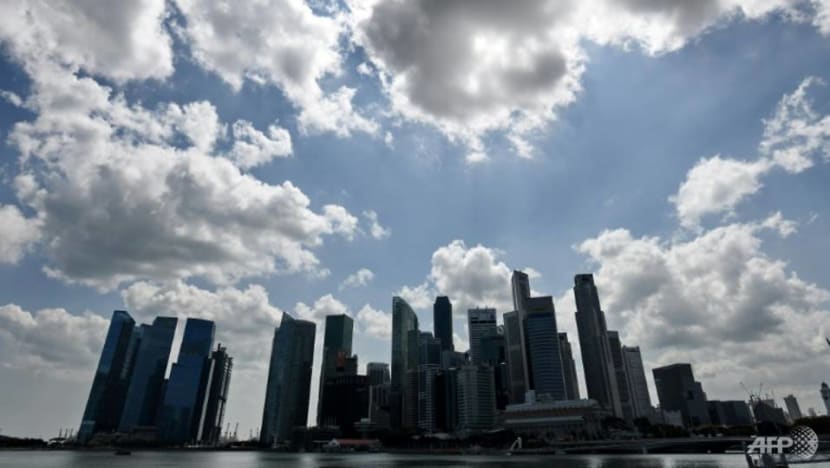
The Singapore skyline. (File photo: AFP/Roslan RAHMAN)
SINGAPORE: It was supposed to be an optimistic year of a 1.5 to 3.5 per cent boom for the Singapore economy.
Instead, the country veered close to a potential recession. It now looks to get by with 0.7 per cent growth instead.
The uncertain environment has also prompted employers, particularly in trade-related sectors witnessing job losses, to be more cautious in hiring, according to the Monetary Authority of Singapore.
As the year draws to a reflective end, hope springs eternal that the Singapore economy will bottom out and turn around in 2020. But is the worst really over?
“Whether we tip into a recession or not depends a lot on external factors,” said Prime Minister Lee Hsien Long in November after ASEAN summits ended.
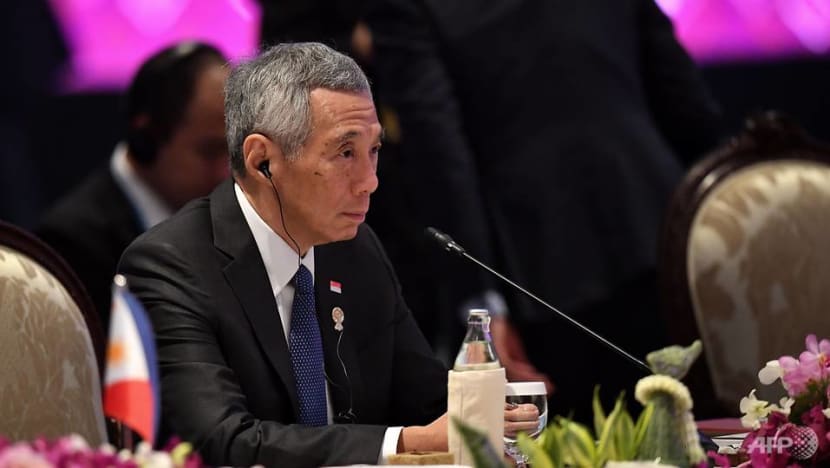
READ: Commentary: Shocks lined a rather demanding year for Singapore and the global economy
TRADE TAKES A BEATING
The World Trade Organization (WTO) sounded the warning bells in October, when it more than halved growth projections for world merchandise trade, in what will be its weakest year since 2009, the height of the global financial crisis.
The WTO also highlighted the wider implications of weaker trade sentiments for global growth for 2019 and 2020.
The global economy has seen synchronised slowdowns and weaker business sentiments this year, including in China and the Eurozone, according to the Brookings Institution and Financial Times’ Tracking Index for Global Economic Recovery.
Worryingly, there is a growing economist consensus that this sluggishness is here to stay, and may not be resuscitated even after a US-China phase 1 trade deal is reached.
Export growth simply has not returned to pre-2008 levels, WTO historic data shows. It also declined relative to GDP growth over the 2010s.
READ: Commentary: Singapore trade, disrupted, (not) business as usual
These figures reversed a decades-long trend where world trade has been one of the strongest engines of global prosperity and outstripped global growth by at least two times.
They also suggest that the origins of the current trade slowdowns predate US President Donald Trump’s election win and Brexit.
Why has trade taken such a beating? Has the world lost its love for globalisation?
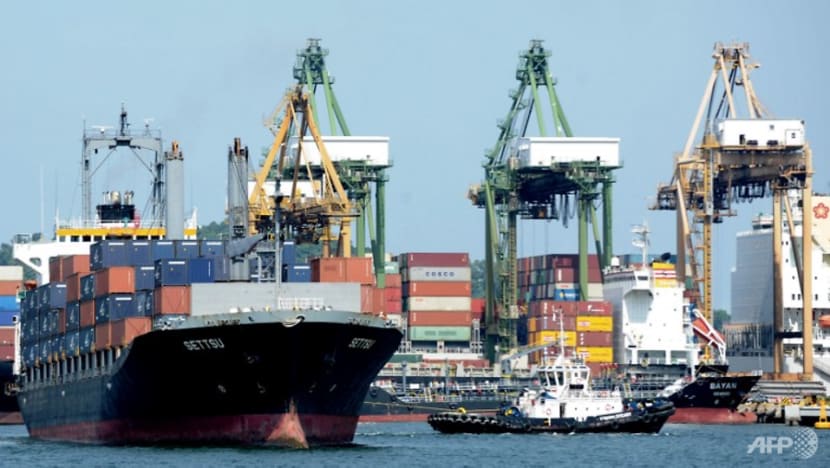
LACK OF POLITICAL APPETITE FOR TRADE LIBERALISATION
The reality is that after decades of furious lowering of trade barriers and multinational conglomerates spreading supply chains across the world to take advantage of comparative national advantages, the pace of globalisation was bound to slow at some point.
But that swing has been accelerated by rising inequality, and a sense in many countries coping with regressive redistributive effects that control must now be wrestled back by the nation-state.
America First is a symptom, not a cause of our global economic woes. Societies are grappling with powerful underlying economic forces and reacting with a political pushback against trade.
READ: Commentary: How the West lost its way and what can be done to restore social mobility
But this surge in inequality caught most by surprise. Many countries haven’t had time to react in a more comprehensive manner to this new disruption.
Successful global institutions, like the WTO and the continuation of multilateral trade, are fundamentally built on the backs of strong states that enjoy huge levels of trust with their populace.
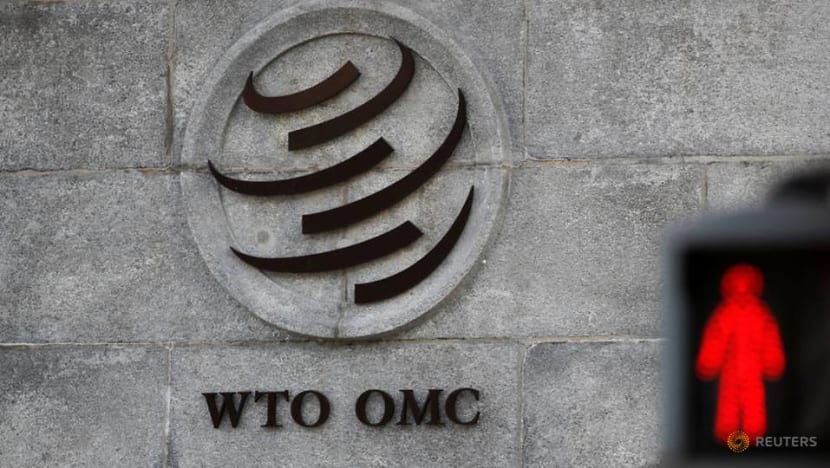
Retreat and defensiveness can become the default response when trust is eroded and the benefits of trade seem to be shared less equitably.
Admittedly, the writing was on the wall when the world could not summon the political will to conclude the 2001 WTO Doha round of negotiations that dragged on for more than a decade.
READ: Commentary: The end of the WTO? Why China dropped a dispute against the US, EU
THE TIGHTENING FAUCET
There are bright sparks where trade continues to flourish during these tricky times.
The Association of Southeast Asian Nations (ASEAN) has managed to maintain movement in deepening economic cooperation and connectivity with big countries, especially China and India.
The signing of the Trans Pacific Partnership (TPP) without the United States, as the new Comprehensive and Progressive Agreement for TPP (CPTPP), and signals that the Regional Comprehensive Economic Partnership (RCEP) is close to the finishing line bode well.
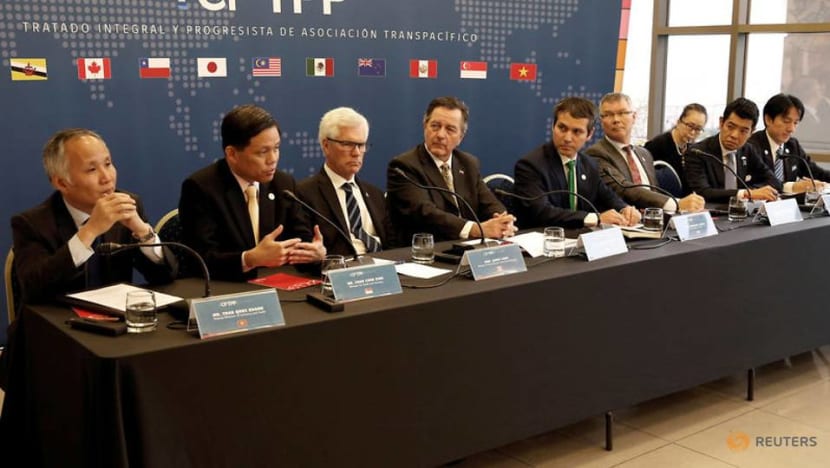
READ: Commentary: Can the RCEP save the Singapore economy?
Some would argue that the US’s completion of the US-Mexico-Canada Agreement (USMCA) that replaces the 26-year-old North American Free Trade Agreement (NAFTA) is another positive step showing trade is still the beating heart of many economies.
But its terms and conditions instead suggest a more targeted tightening of the faucet. For example, the new USMCA agreement imposes higher standards to pull manufacturing back to North America and shift the balance of benefits of trade.
Among many changes, it now requires 75 per cent of a vehicle’s parts to be made in one of the three countries – up from 62.5 per cent in NAFTA – and a minimum portion of the average vehicle to be made by workers earning at least US$16 an hour (which will mostly benefit Canada and the US, and not so much Mexico).
If this example is anything to go by, countries are jostling with each other to get the best deal, but is that where we should be looking to fix the world’s discontent over trade?
A GROWING IMBALANCE IN TRADE
The 2010s was not just the story of slowing global trade expansion but also a tale of the explosive growth of Big Tech titans, which has fueled a surge in services and data flows that do not require the crossing over of goods over national borders, and can produce much more with way fewer people.
But what do platform giants do with that value captured? Facebook generated S$55 billion in 2018 revenue, but only paid 13 per cent in effective tax rate and employed 40,000 people.
READ: Commentary: The world's most powerful teenager? Facebook

Silicon Valley has been accused of avoiding almost a hundred billion in taxes over the last decade by British organisation Fair Tax Mark.
America’s 400 biggest firms also paid an average of 11.3 per cent taxes on profits last year, according to the US Institute on Taxation and Economic Policy.
US President Trump’s 2017 tax cuts had some role to play. But this three-decades-long decline in corporate tax rates is not unique to the US, then IMF Managing Director Christine Lagarde pointed out in a March 2019 commentary for the Financial Times.
READ: Commentary: MNCs have gotten away with paying less taxes. That must change
READ: Commentary: What taxation for the digital age ought to consider
It’s a race-to-the-bottom problem where countries compete to have the most favourable tax laws to attract mobile capital, lured by promises of new business opportunities and jobs.
But it comes with a hefty price tag governments around the world, coping with burgeoning social programmes to arrest inequality, can ill afford.
Indonesian Finance Minister Sri Mulyani announced plans last month to cut corporate taxes to 20 per cent. Malaysia had to fight to resist such calls in their annual Budget in October.
The global trade pie isn’t shrinking, but a bigger slice is going to Big Business. Meanwhile, government debt around the world has almost doubled since the start of this decade.
Is it a surprise if workers in more economies feel like trade hasn’t been a fair deal and their governments push back?
A PUSH FOR AN INTERNATIONAL TAX SYSTEM
That said, there is growing momentum among G20 countries for a global consensus on implementing the OECD Base Erosion and Profit Sharing (BEPS) initiative to tackle corporate tax avoidance, ensuring profits are taxed where economic activities generating these are performed.

READ: Commentary: The US govt is getting closer to a plan to tame Big Tech
This would mean corporate giants paying taxes where value is created, likely in places where they hire people that contribute to their top line and do business, instead of scurrying profits to offshore tax havens.
Discussions have also touched on a minimum corporate income tax rate, and criteria on sectors and company size these rules would apply to.
A successful agreement would not be painless. It may require countries, like Ireland, with comparatively lower corporate income tax rates to rethink their industrial strategies to continue to attract MNCs and create jobs for workers.
Singapore too shares some of these concerns about the erosion of autonomy over tax policy.
While Second Minister for Finance Indranee Rajah highlighted general support for BEPS and other efforts to establish a rules-based international tax system in October, she also emphasised the importance of allowing governments leeway to pursue a policy mix appropriate to their developmental needs, including lower income tax rates but higher consumption or wealth-based taxes.
READ: Commentary: Time is ticking on the global economy
Implementing BEPS would also require greater cooperation among countries to reach agreement on important but onerously technical details, including limiting the risks of double taxation and unilateral distortions to the global tax system.
“A lot of the devil will be in the detail …. It’s a huge amount of work to try to get all this done next year. But there is a huge political will to do that,” PWC’s International Tax Policy Director David Murray said to Fortune just last month.

WHAT THE GLOBAL ECONOMY NEEDS
Changes to the global tax system to adapt to new tech and trade realities isn’t a panacea for fragile states fixing fractured social compacts, but it could play a role in rebalancing the global distribution of the fruits of trade and provide more fiscal firepower for public services and welfare programmes for those left behind.
How much government revenue is at stake? Potentially a lot.
The Australian Taxation Office just this month settled a tax dispute with Google and got back AU$481.5 million (S$451 million) on top of previous tax payments by the tech titan.
It has seen AU$1.25 billion collected from tech giants including Microsoft, Apple and Facebook after the enactment of laws designed to mandate companies book sales and file tax returns in the country.

But going it alone risks accusations of protectionism – like when the US lambasted France’s new digital services tax as discriminatory towards US corporates this month.
International and multilateral action is therefore needed to get corporates to pay their fair share across the world, close tax loopholes and ensure that free and fair trade flourishes.
This may just be the nudge to the fragile global economy needed to restore faith in trade and globalisation again.
Lin Suling is executive editor at CNA Digital News where she oversees the Commentary section and the new Heart of the Matter podcast.















